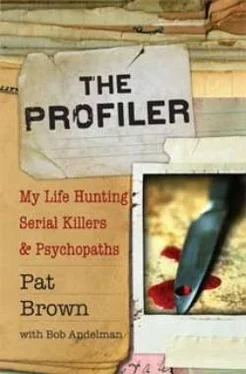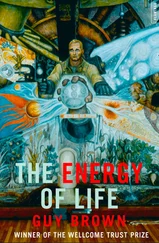“Everyone is in agreement that Missy was not there at that time, that she was killed somewhere else and her body was brought back.” It wasn’t until later that they brought in cadaver dogs and came across her body. Where did her body come from?
If she got tired of waiting to be picked up and walked home and somebody raped her on the way-like Tommy from down the street-he probably would have just left her there and run.
If somebody abducted her and dragged her off to a vehicle, she wouldn’t be there at all. So why did the body end up back by the house? Why wasn’t it there to begin with?
Earlier, Orville reportedly told Rhonda that she shouldn’t walk between the houses because bad things happen to little girls who walk in that area.
There was a theory that Orville may have actually brought Missy home and done something to her in the house, but I found that kind of unlikely. My theory is that he did something to her in those woods and then didn’t know what to do about his dead daughter lying in the middle of the patch. He had to do something with her body-after all, he might have left evidence on it-so he quickly carried her to his house and put her body in the trunk of the car; he would slip back inside and into bed and deal with “the problem” later. He hid the car keys to make sure no one else would borrow the vehicle and decide to put some groceries in the trunk.
Eventually, the car was moved. I think it was moved around quite a few times because he didn’t know what to do with it. One of the reasons her body may have ended up where it did, dumped back in the woods to be found two weeks later, was that he got tired of it all. We find this often happens with people who are involved with the killing of a family member. That’s one of the reasons we look back at the family when we see something like this. We look at the husband, the parents-whoever the victim had a close relationship with, because these people have to live day in and day out with the search, and at some point they get frustrated by it. They tire of the questioning and the wife or the husband or whoever constantly looking for the missing person and spending their entire lives doing this. They want to move on. That kid’s dead, I want to forget about it. I want to start doing stuff. I don’t want to sit here and dwell on this.
The killer will bring the body back and dump it in a location where it will be found and they can get that part over with. There’s the body. We found her. Now can we move on? Of course, they don’t think ahead to the next part, which is that the authorities will actually investigate the homicide. The perpetrator doesn’t think that far ahead.
Orville didn’t seem terribly surprised when he got the news that Missy’s body was found right near the house in the woods. He said, “Huh.” That someone might have brought her body back and dumped it in the bushes would not be a big surprise to Orville if he was the one who put it there. It is most likely that he kept Missy in the trunk until he had an opportunity to move her to another location for hiding. There was speculation that he hid the body in his mother’s barn. But, at some point, my theory continues, he wanted her to be found, and so he put her back in the trunk and brought her back to the woods by the house. He carried her body to the bush and dumped it. Then he went back to the car, looked in the trunk, and realized the shoes were still there. He grabbed them, tossed them into the bushes, and took off. The body was found, and by that time the police were looking at him.
One of the interesting things is that his wife told me that he kept spraying his car trunk with insecticide. He was apparently having a little bit of a fly problem. That’s why his wife noticed an odd smell and an insecticide odor as well.
The family, in spite of Orville’s squirrelly behavior, did not think he had anything to do with the crime. They just thought he was a quirky fellow.
I see this happen with many families. People around Missy, her teachers and her Girl Scout leader, thought she might have been sexually abused. They believed something was not right in her life long before she was murdered. Missy’s behavior had changed in recent months, she seemed sad and distant. Yet they had trouble believing that someone they knew was responsible for this horrific act.
I WENT BACK and looked at Orville’s history and there was no shortage of interesting details. He told his first wife that he had had a sexual relationship with his sister, and his sister was killed running in front of a car-away from him, perhaps.
We don’t know whether it’s true that he had sex with his sister, but he said that he did, which is an interesting admission.
I also learned that another family member had reported that she had been molested by him. When we get to Missy, it’s not terribly surprising to learn police suspected he had sexually assaulted her as well.
The information was adding up and Orville was scoring all the points. The time line made no sense for anybody but Orville to have committed the crime. Everything pointed to him: his peculiar behaviors, his lack of interest in looking for his daughter, and the claim that she was already dead, so why bother looking? This guy was awfully confident that he knew what happened to Missy.
The family was blind to these behaviors; they wouldn’t and couldn’t believe it.
I MET WITH the police, studied all of their materials, and examined the crime scene. I believed that the police were absolutely correct, that Orville must have been involved in the sexual assault and murder of his daughter.
But I came to a slightly different theory about where it happened and how it went down.
The police did not have enough evidence at that point in time to go to court. They wanted the family’s cooperation, but they weren’t getting any because the police focused suspicion on Orville.
When I made my independent analysis, which pointed to Orville’s involvement, I told the police that I would sit down with the family and ask for their cooperation. We had a fascinating meeting outside the house. We all sat in chairs with a beer and relaxed. Miranda was there, as was Missy’s uncle, and it was quite a group. Orville was not living there at the time; he had already fled the family coop and was in prison serving time for an unrelated charge that occurred when his new girlfriend called the police on him. They had been arguing over a new man in her life and Orville said he was going to hurt the other boyfriend. When the police arrived on the scene, he shot at them, they shot back, and he went to prison.
I explained Orville’s entire history. I explained how his sexual experience with his sister demonstrated sexual deviancy before they ever met him. He was not an honest man and he was a major manipulator. I went through every detail of his background. I explained how they got wrapped up in this, why it was confusing, and how they might have difficulty recognizing the truth in all of this.
When I finished, they looked at me with sad, glazed-over expressions and I realized that this was one family that could handle the truth, even as ugly a truth as this one. Families often fight back against the truth, and they say, “No way,” no matter what I tell them. This family did not do that. Instead they said, “What do you need us to do? How can we help?”
I put in place a plan to try to draw a confession out of Orville, and I started by communicating with him. There were letters coming from him, so full of garbage it was just amusing. The family worked with me, so Missy’s uncle, Miranda’s brother, sent a letter saying, “Orville, we have this great private investigator working with us who believes Missy’s death was an accident.”
I wanted Orville to think I was on the family’s side in supporting him and that the family did not want this going to court. They believed it was an accident because the criminal profiler told them that. This was my ruse: I believed that Orville was drunk when he picked up Missy and, on the way back, they got into an argument, and he accidentally killed her, and he didn’t know what to do. I thought the police were wrong that it was murder and that the worst charge he faced would be manslaughter.
Читать дальше












